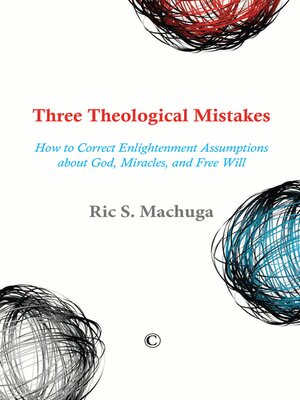Three Theological Mistakes
ebook ∣ How to Correct Enlightenment Assumptions about God, Miracles, and Free Will
By Ric S Machuga

Sign up to save your library
With an OverDrive account, you can save your favorite libraries for at-a-glance information about availability. Find out more about OverDrive accounts.
Find this title in Libby, the library reading app by OverDrive.



Search for a digital library with this title
Title found at these libraries:
| Library Name | Distance |
|---|---|
| Loading... |
Is the existence of God a matter of faith or knowledge? Does God sometimes act miraculously or are there physical causes for everything? Is morality absolute or relative? Are humans truly free or does God's sovereignty determine everything? Whenbad things happen, is God the cause or are they the fault of humans? Too frequently Christians answer these questions with a Yes to one side and a No to the other side. Thomas Aquinas and Karl Barth answer Yes to both. Following their model, Machuga defends a third way which transcends the Enlightenment dichotomies of fideism vs. rationalism, supernaturalism vs. naturalism, relativism vs. absolutism, free will vs. predestination, and God's justice vs. his mercy. Machuga begins by showing how these false dichotomies grew out of the Enlightenment assumptions of mechanism, universal quantification, and mono-causation. He then corrects these demonstrably dubious assumptions by articulating a theory of dual-causation. The result is a thoroughly biblical understanding of God, miracles, and free will that can withstand the contemporary criticisms of both science and philosophy.







